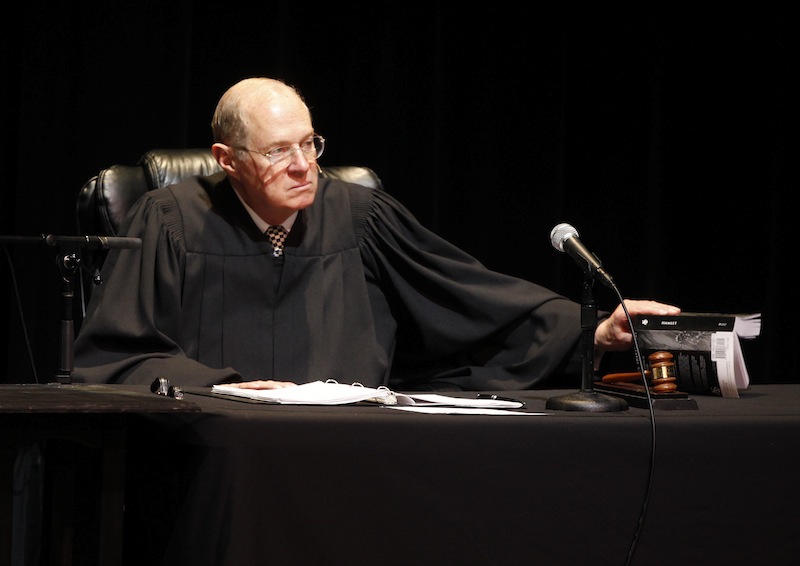The nine Supreme Court justices appeared narrowly divided along ideological lines in oral arguments Monday about whether states may require people to submit proof of citizenship in order to register to vote, as a 2004 Arizona law necessitates.
As is often the case, the most ambivalent was Justice Anthony Kennedy, who channeled the views of both sides during different parts of the argument.
At one point, Kennedy wrestled with whether Arizona’s proof-of-citizenship requirement crosses a line. He asked the state’s attorney general, who was defending the law, whether states may also require proof of one’s address or date of birth when registering to vote. If so, he posited, then the federal requirement “is not worth very much.”
At another point, he launched a defense of Arizona’s actions in principle and took issue with some of the reasoning by the Ninth Circuit Court of Appeals, which ruled against Arizona.
“The state has a very strong and vital interest in the integrity of its elections,” Kennedy said, “even when those, and perhaps especially when those are elections of federal officials. And it seems to me the Ninth Circuit’s new test did not give sufficient weight to that interest.”
Chief Justice John Roberts seemed to be leaning slightly in Arizona’s direction — but only slightly. He did not ask any questions of Arizona’s attorney general and asked a handful of modestly skeptical questions to the two lawyers arguing against Arizona’s law.
Toward the end, Roberts wondered how parts of the federal voting law were “consistent with the statutory purpose to streamline registration.”
At issue is the validity of Prop 200, adopted by Arizona in 2004, which requires people to submit proof of citizenship when registering to vote. Challengers say it violates the federal National Voter Registration Act, which requires states to let people register to vote using a federal form that only makes them attest under oath that they are citizens.
The outcome of the case appears likely to hinge on the narrower legal question of whether the NVRA statute is “exclusive” or whether leaves room for a state to seek additional information from people seeking to register to vote.
Led by Justice Sonia Sotomayor, the four liberal justices were openly skeptical of the Arizona law.
“What’s the difference between requiring additional information and requiring an additional form?” Justice Elena Kagan asked Arizona’s attorney general, Thomas C. Horne.
Justice Ruth Bader Ginsburg asked a handful of pointed questions, and Justice Stephen Breyer made several attempts to needle the challengers’ lawyer into debunking Arizona’s arguments.
The ever-colorful Justice Antonin Scalia forcefully defended Arizona against the challengers’ claims, lamenting that the state didn’t launch a more sweeping indictment of the NVRA form. He was backed up by several sharp, pointed questions by Justice Samuel Alito, who didn’t speak much, but when he did, went straight for the jugular.
“Let me give you this example,” Alito said. “A person rides up to a place to register on a bicycle and gets out and hands in the federal form. This boy looks like he is 13 years old and he is carrying school books, he is wearing a middle school t-shirt, but he has filled out the form properly. Are they required to register him?”
Retired Justice Sandra Day O’Connor, a native Arizonan who in 2010 ruled against her state in this case from a lower court on which she occasionally sits, was present in the chamber.
In the final moments, Scalia warned the Obama administration’s lawyer, who was arguing against Arizona, that if the constitutionality of the NVRA form is challenged in broader terms, “You’re going to be in bad shape — the government’s going to be.”






